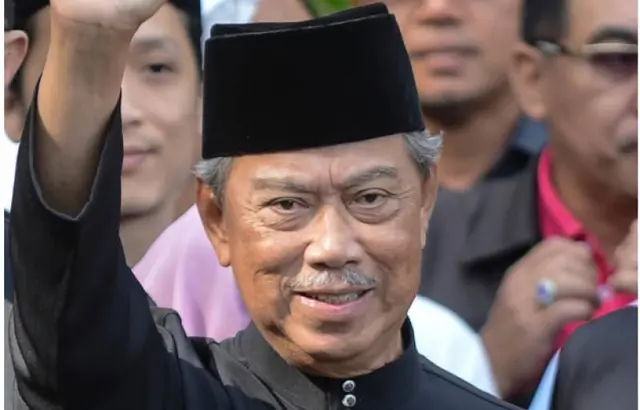By APD writer Alice
On March 1, President of the Bersatu party Muhyiddin Yassin was sworn in as the 8th Prime Minister of Malaysia, temporarily ending the political crisis that lasted for more than one week in this Southeast Asian country.
However, complicated developments in the Malaysian politics with the Alliance of Hope (Pakatan Harapan- PH) continuing to nominate Mahathir Mohamad as prime minister candidate and seeking to call upon the House of Representatives to hold an emergency meeting to determine who is the legal prime candidate, have made the stabilisation of the current situation a great challenge.
The eighth Prime Minister of Malaysia, Muhyiddin Yassin, was born in 1947, graduated from a university in economics. He was a member of the Unified Malays National Organization (UMNO), and served as Sultan of Johor State. He assumed many ministerial positions in predecessor governments during the 2005-2015 period. Muhyiddin served as Minister of Home Affairs in the government of Prime Minister Mahathir Mohamad until Mahathir resigned on February 24.
It can be said that Muhyiddin's appointment as prime minister was a surprise as before that, discussions in the House of Representatives of Malaysia gave many other scenarios. However, according to the National Palace’s statement, Malaysian King Abdullah Sultan Ahmad Shah, basing on the Constitution, decided to choose Muhyiddin to end the prolonged political crisis.
The new Prime Minister took office when Malaysia's political situation still sees many tense developments. About an hour before the inauguration, the Bersatu founder and senior leader Mahathir Mohamad declared Muhyiddin not a "legitimate prime minister" because he did not receive the necessary support from parliamentarians.
Earlier, on the evening of February 29, PH announced that they had the support of a total of 114 MPs (out of 222 MPs) to nominate Mahathir Mohamad as prime minister. This is likely to lead to chaos in the days to come when those supporting former Prime Minister Mahathir Mohamad believe that he is the one with the necessary seats in the lower house (at least 112/222 seats) to have the right to be prime minister. It is likely that this force will promote a vote of no confidence in the lower house. The Malaysian House of Representatives is expected to convene on March 9. This will be the "front" for factions supporting various figures in Malaysian politics to continue fighting.
For Malaysians, many expressed "discouragement" to what is happening in politics. The people just want the government to care about their rights and to get the country out of economic difficulties. However, given the political situation in Malaysia, this may still take a long time.
Besides, economic issues also pose challenges. Muhyiddin came to power in the context of political instabilities greatly affecting the socio-economic situation of the country, which is facing many difficulties due to the COVID-19 outbreak as well as the impacts of the global economic downturn over the past years. Some production and service sectors, especially the tourism sector, are being seriously affected. The economic indicators are becoming worse.
Therefore, maintaining macroeconomic stability is considered the highest priority of the new Prime Minister. His government will continue to find ways to reduce inflation and living costs to improve the lives of the people, maintain consumer confidence, and attract more foreign investment. Domestic enterprises and investors also expect to receive government support to improve their competitiveness globally.
A highly experienced manager, Muhyiddin has foundations to conduct reforms, bringing a new face to the country's government apparatus and meeting the expectations of the people. The issue here is that he must overcome the opposition of other political parties to have the opportunity to bring Malaysia into a new stage of stability.
(ASIA PACIFIC DAILY)
 简体中文
简体中文





